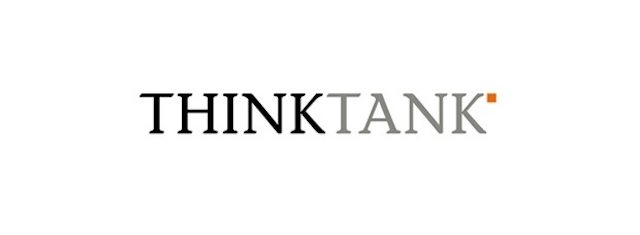Politics
What is a think tank?
A factory of ideas

Think Tank logo (Source: www.sohofactory.pl)
USPA NEWS -
We all have heard at least once, in a conference or in a TV debate, or on a radio program, this curious name or expression of a “Think Tank“!
It is a group or organisation conducting research and seeks solutions about issues in generally public policies. Usually there are many areas studied.
It is a group or organisation conducting research and seeks solutions about issues in generally public policies. Usually there are many areas studied.
These areas cover such as health, education, security, food& nutrition, science & technology, finance, industry in order to establish an audit, and deliver strategic orientations. It is so called to be nonpartisan and nonprofit group claiming to have nor influence, nor bias in their neutral consistency. Literally we could define a think tank as a reservoir for ideas, a kind of large and deep container for brainstorming.
The mission of the think tank is to identify the specific parameters to solve a problem of a one kind. To another extend, it can be the star up for a public reform for a state or government to implement.
It is although usual to be ranked as a honourable think tank.
For instance according to the « Global Tank Rankings », The Brookings Institute was ranked in the first « Top 25 Think Tank Worldwide category ». The best is the ranking, the most expensive is the fee of reports ordered.
The Capital of the US, Washington DC is the home of Think tank with a record of 393, among the 1815 just in the US. The rest of the world counts more than 6300 TT in 169 countries.
Danielle Pletka, Vice President for Foreign and Defence Policy Studies, American Enterprise Institute gives her own definition: A “think tank“ ““ or at least, a think tank in Washington D.C., is generally a public policy research institution. It is a home for scholars, an incubator for ideas, a place to consider, to explicate and to drive better policies for our government in our nation´s best interests. At least, that is the American Enterprise Institute.
Conversely, Matthew Rojansky, Deputy Director of Russia and Eurasia Program, for the Partnership for a secure America
« Think tanks come in all shapes and sizes, from an elite handful of national or global brand name institutions, with hundreds of scholars and staff, multimillion dollar endowments, and substantial alumni networks in government, to a profusion of much smaller, usually single issue- or region-oriented groups. Some are chartered and funded by government, while others are affiliated with colleges and universities, and still others are entirely private and independent. The stated missions of these institutions are as varied as their physiognomy, however most share a basic aim to produce expert analysis of public policy issues that is relevant for--and therefore likely to influence--those who make policy decisions in government.
However nowadays, it seems that these factories of ideas are becoming so as numerous as important in today´s public policy environment urged by the crisis (Economy, Finance, Climate change, resources for feeding the next generation“¦).
This statement reinforces the vulnerability of the actual political system, which needs to be helped by the academic and research world that feeds them with ideas and concepts. This bilateral action enables to sustain of the actions and promises of the politicians. The best way to announce reforms in order to implement change, before the audience, the citizen, is to being presented by the aura of a professor or “Mr PhD“, “Mr expert“ in such a field or area specialisation. This will reinsure the audience more than a politicians, who usually seen as for making broken promises, after being elected.
One of the most famous example is Margaret Thatcher, who relied on the Adam Smith Institute and the Institute of Economic Affairs for key ideas that were later promoted in the United States by the Reason Foundation and others. This choice was driven in order to set out privatizing the British Economy, that the British Prime minister could not conduct herself by her own.
So let´s think a bit about the "think tank" and wonder where does come its origin from?
Some historians (Lawrence Reed, "A Student's Essay That Changed the World, "Mackinac Center for Public Policy, 2005) say that the very first idea of this concept came from Thomas Clarkson, who founded an Englishman who founded the Society for the Abolition of The African Slave Trade in 1782. He described the condition of the slave trade, supplying diagrams of slave ships, and combining factual inquiry with moral argument, engaged in a war of ideas at that difficult time and lack of free expression. (Gerald Frost, Antony Fisher: Champion of Liberty (London, Profile Books, 2002).
Later in the 20th Century, " The Manhattan Project " was a very focused think tank was born in New York. It was at the same period when the Brookings Institution and the Urban Institute are other organizations that left their mark.
--------------------------------------------------------------------------------------------------------------
Nowadays it is more vital to implement solutions thanks to a think tank, although the ideology does matter but is a condition but not a necessity, by itself.
The other question to ask is who is financing these organisations, claiming to be nonpartisan and nonprofit while the only and actual fuel today to function in modern societies is the money itself obviously related to profit and political parties?
Liability for this article lies with the author, who also holds the copyright. Editorial content from USPA may be quoted on other websites as long as the quote comprises no more than 5% of the entire text, is marked as such and the source is named (via hyperlink).





